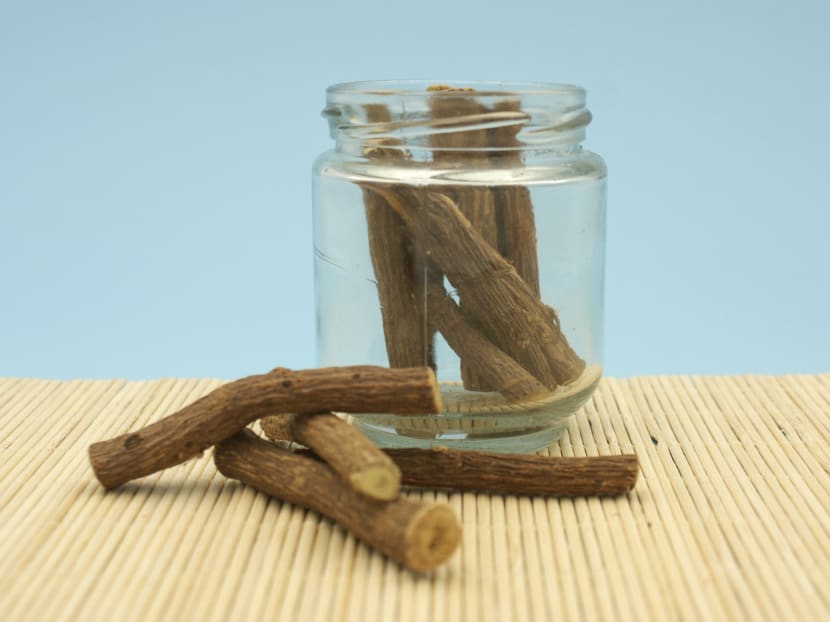Compound in liquorice extract has potential to treat coronavirus, Chinese study finds
HONG KONG — A compound found in liquorice extract that is used in traditional Chinese medicine has shown potential as an antiviral to treat the new coronavirus, according to an initial study by researchers in Beijing.
HONG KONG — A compound found in liquorice extract that is used in traditional Chinese medicine has shown potential as an antiviral to treat the new coronavirus, according to an initial study by researchers in Beijing.
Chinese liquorice, a flowering plant that is native to Asia, contains a compound called liquiritin, which the team said was found to prevent rapid replication of the new virus strain in monkey cells.
The study, which has not been peer-reviewed, used artificial intelligence technology to speed up the research process.
“We recommend liquiritin as a competitive candidate for treating Covid-19,” the team of medical experts from Peking University and the Academy of Military Science wrote in a preprint paper on the bioRxiv website, referring to the disease caused by the virus.
Scientists worldwide are racing to develop treatments and a vaccine for the disease that was first reported in central China late last year and has spread across the globe, infecting more than 3.6 million people and killing over 253,000.
Patients are most commonly treated with antiviral drugs, but none has yet been proven effective against the coronavirus. Drugs that can calm the immune system and antibodies that can attack the virus are also being used.
Liquiritin is usually found in the form of herbal compound liquorice tablets in China, where traditional medicine has been touted by Beijing as an important treatment for Covid-19 patients — though many scientists are sceptical about its benefits.
According to the research paper, liquiritin functions as an antioxidant and has antidepressant, neuroprotective, anti-inflammatory and therapeutic effects on patients with heart disease.
Liquorice extract is also commonly used for gastrointestinal and respiratory problems, as well as widely used as a sweetener.
The team used an artificial intelligence system to predict the efficacy of liquiritin, finding that it significantly inhibited the replication of the new virus strain, Sars-CoV-2, in Vero cells — a cell line developed from a monkey.
They also tested the compound on mice for seven days, finding that liquiritin “didn’t show toxicity or side effects in two independent experiments”, according to the paper.
“In summary, we suggest that liquiritin should be assessed in human patients suffering from Covid-19,” the researchers wrote.
They also suggested that the compound could potentially have “a broad and potent antiviral function on other viral pathogens” like hepatitis B and HIV.
In mainland China, traditional Chinese medicine has been given to more than 90 per cent of Covid-19 patients as part of their treatment, but there are no statistics or evidence to prove its efficacy. SOUTH CHINA MORNING POST







